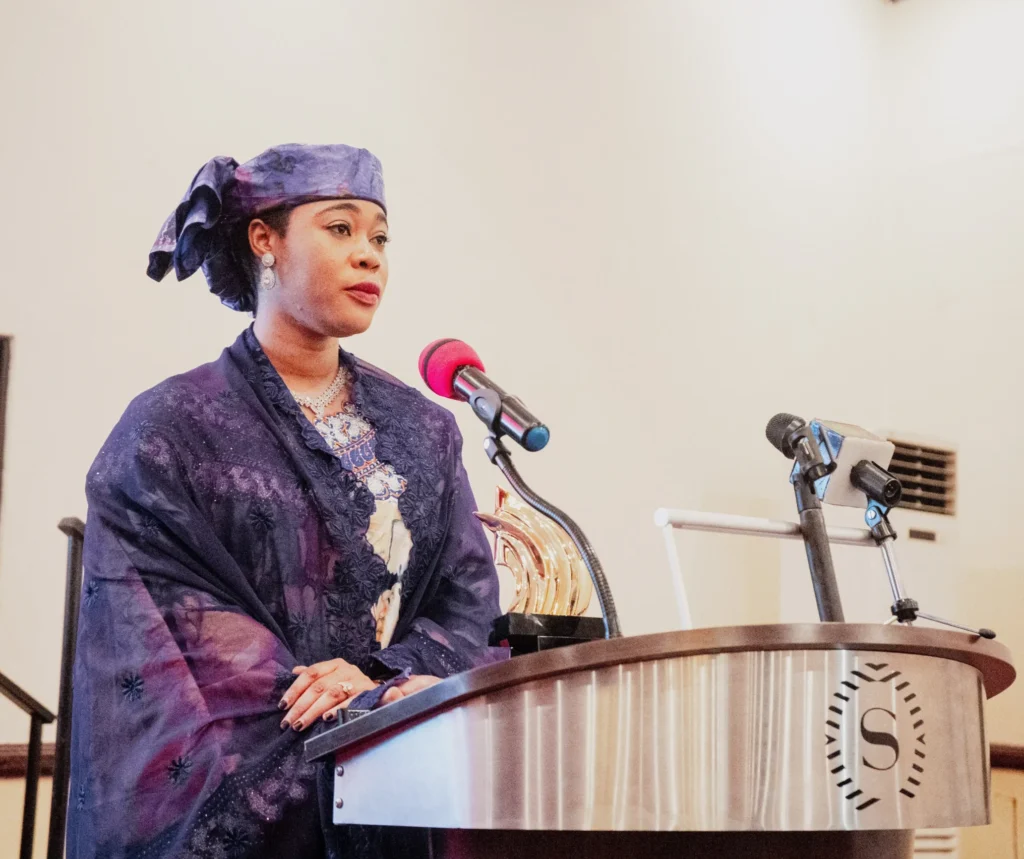Running for a political office in patriarchal societies that violently pushes women to the margin, in a place where it is believed that women should not even dream about power because men, not women, are born to rule is not easy. It is believed that women belong to the home and are incapable of making sound decisions. Women are perceived as unruly and unbecoming to expose themselves publicly when they run for political activities such as campaign rallies. Another issue associated with vying for a political position as a woman is the financial capacity required to compete. Running for political positions in Nigeria requires massive financial backup and this is one of the biggest hindrances to women’s political participation.
However, this has not stopped women from vying for political representation. From women like Maryam Isa Barnabas, the elected chancellor at Ushafa ward, Kemi Adeosun, who contested for the post of chancellor of Nyanya, to Zainab Suleiman Umar, who competed for a seat in the Kumbotso Constituency for the Kano State House of Assembly At 26 and Aisha Augie Kuta. women are changing the narrative.
We can see this narrative is changing, albeit at a snail’s pace. This indicates that the participation of women in politics is beginning to increase and the future is bright for Nigerian women in politics. Therefore, the relevant stakeholders are advised to advocate for the protection of women from abuse, empower them economically and politically and review the necessary legislations to accommodate the growing interest of women in elective and appointive positions.
I write about this issue now, so I can highlight the struggle of women in politics and possibly encourage women and pave the way for women to participate. It is not easy to participate in Nigerian politics, even as a man with the culture of holding illicit nocturnal meetings and politicking being associated with thuggery, hooliganism, and intimidation. It is also interesting and essential to note that many of the voters in the rural areas do not have access to the internet, not to talk of smartphones, but they decide the fate of the elections.
I participated in Electoral campaigns in the field, moving from ward to ward where I came face to face with the electorates. This experience educated me; working in the Nigerian political sphere opened my eyes to many things I ordinarily wouldn’t have known. I have lost count of the number of times I wanted to use the restroom and found out none was provided for women in public offices in Nigeria.
Women are anything but homogenous, and our access to political power is mediated by region, religion, culture, class, age, education, and social networks, among other factors. Indeed, among the obstacles to greater women’s participation in politics remain the gulf for women in Nigerian society to cross, which is caused by such differences. There is a need for data that disaggregates the disparate needs and experiences of women in politics to facilitate better-tailored interventions. Women’s Participation in Nigerian politics is an issue of great importance. Women have been put in the background politically for Years; this has caused a lack of consciousness of women’s representation in public life. However, the intention of most women who wish to participate in politics is basically to support the female demographic, and this is their substantive responsibility. Women who serve on this mandate usually emerge as public office holders successfully. They use the platform of the women’s movement as a veritable platform to seize political power in the government. Be as it may, there is an increase in participation on these bases and women’s movements are achieving gender equity.
Following the trends and happenings around the political environment in Nigeria, I Recommend that a quota system at all levels of government should be introduced; identify and engage stakeholders such as Independent National Electoral Commission and the political party in strict adherence to it. Political parties should increase women’s awareness level by organising seminars/workshops not only in the cities but also in the villages where electorates tend to be more.

